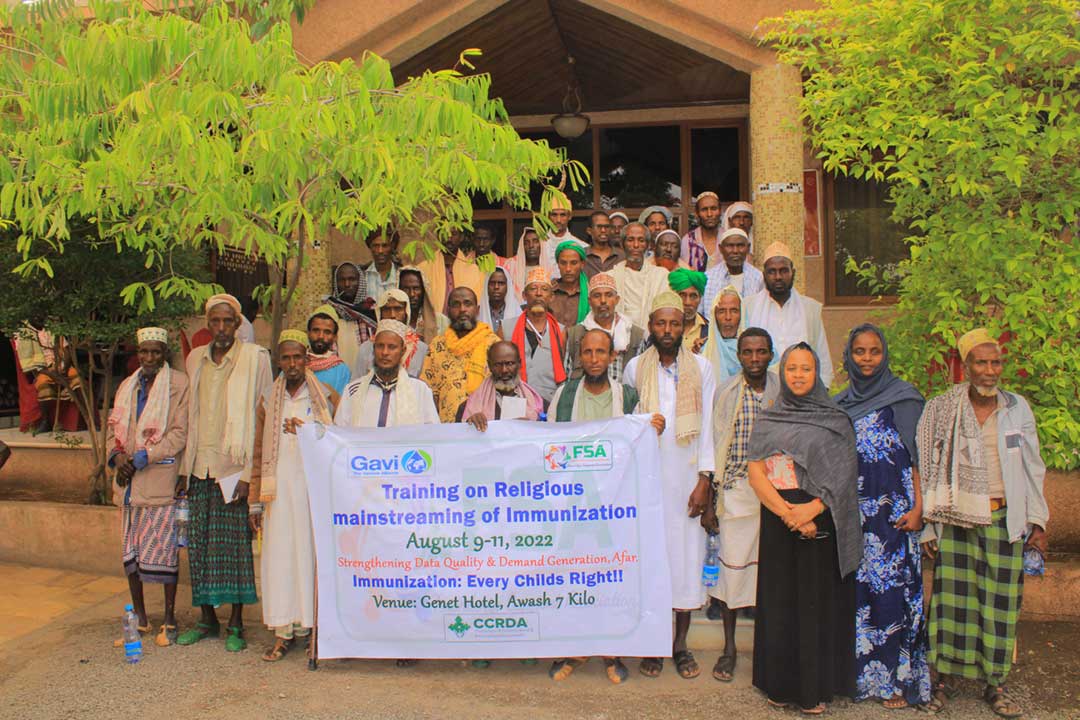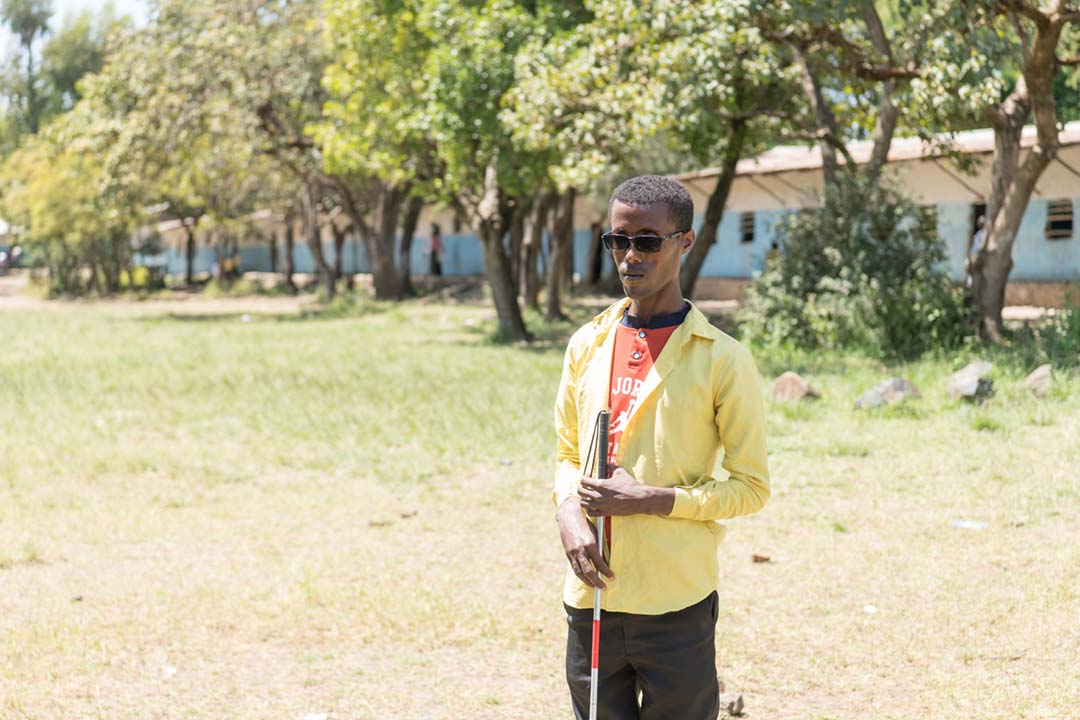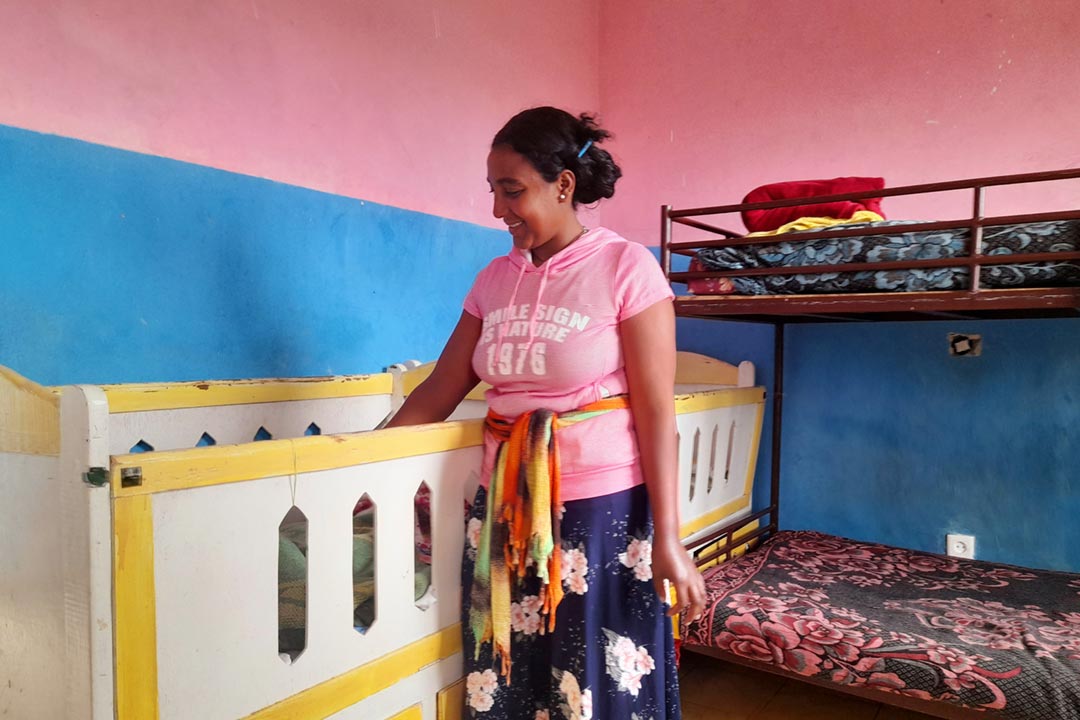Hope from the sky: drones deliver vaccines to remote regions of Ethiopia
Ethiopia test-flies vaccine-laden drones to remote communities.
- 1 March 2024
- 5 min read
- by Solomon Yimer
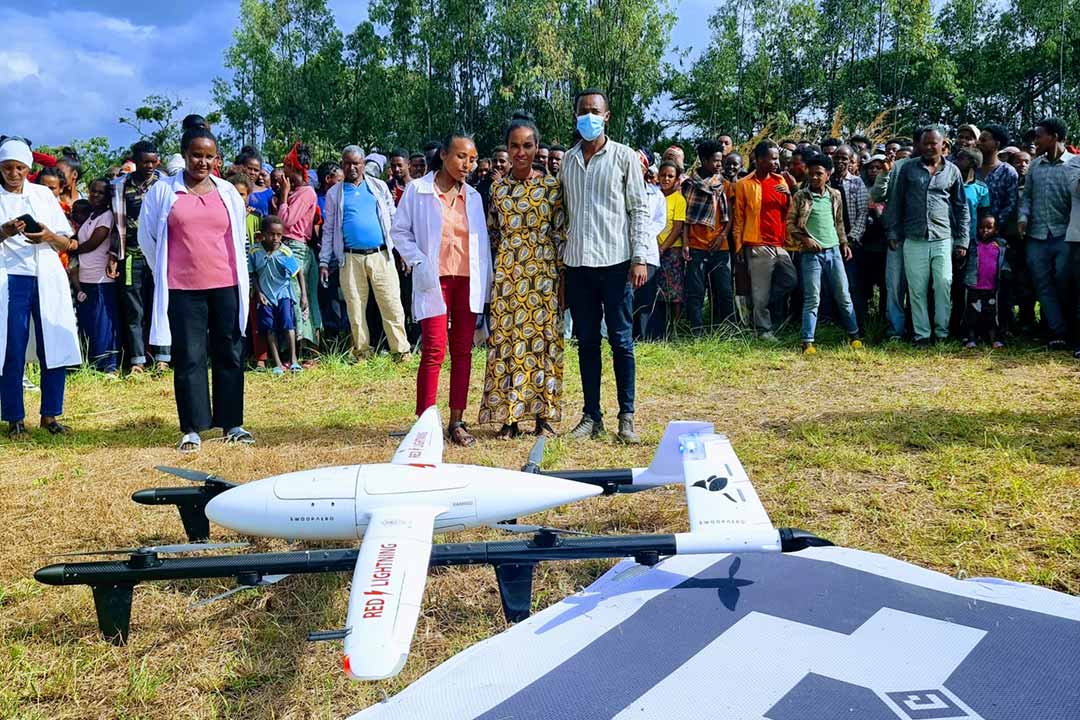
Etalemahu Geletu of Hirko village in Ethiopia's Hadiya zone had intended to keep her four children on schedule for their routine immunisations. But Hirko is remote, and Hirko Health Center, the only medical facility in the vicinity, frequently faced stock-outs of supplies, including vaccines.
"I would often bring my children to the health centre according to their vaccination schedules, but it wasn't always successful," Geletu told VaccinesWork. "We were turned away from the health centre due to insufficient vaccines on many occasions. And we were forced to come back another day."
"We prioritise our children’s health and make the effort to visit the health centre, often leaving behind other tasks, but we would return home empty-handed.”
– Anonymous mother
The upshot, Geletu said, was that her children "didn't always receive every shot on time".
Other parents from Hirko say the supply disruptions were discouraging. "We prioritise our children's health and make the effort to visit the health centre, often leaving behind other tasks, but we would return home empty-handed," said a mother who declined to be named.
Bad roads
Wulta Gessese, head of Hirko Health Center, conceded, "There are logistical issues with the vaccination process in our district. The vaccinator does not always have access to the necessary medicine and vaccine, and it is often difficult to bring these supplies, due to the lack of a convenient transportation method."
Hirko lacks a direct, well-maintained road to the district capital, Bonosha, making the transport of medical supplies to Hirko Health Center challenging – and even then, stocks at the district HQ aren't always reliable.
"The 40 km road [that] leads to Bonosha is very poor to access by car. We typically rely on motorbikes to travel to and from the district, but we often return without enough vaccine and medicine, and sometimes there is none available at all. This poses challenges in delivering the vaccine in a timely manner, leading to postponed appointments or cancellations," Gessese explained.
Air freight
Last October, however, a ray of hope emerged when Ethiopia's first long-range medical drone network took to the sky, flying medical supplies to underserved communities like Hirko.
During a 30-day project, the drones, built and run by Australian company Swoop Aero and partners, delivered payloads that included 6,936 vaccine doses in 44 flights to six isolated communities in Hadiya Zone.
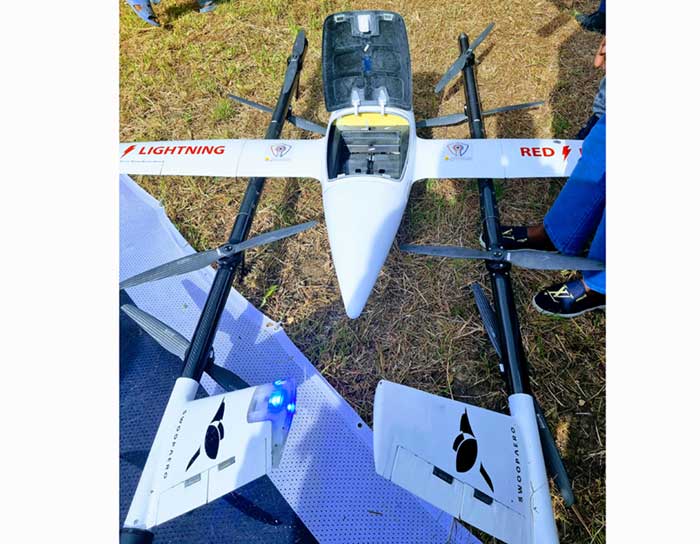
Credit: Solomon Yimer
Swoop Aero's drone is called Kite: an automated, remotely piloted aircraft that can carry 3kg, and range 120 km on a single battery charge.
This project is a component of the public-private collaboration that the Ethiopian Ministry of Health, the Ethiopian Pharmaceutical Supply and the Global Fund formed in 2020. The UPS Foundation and Gavi, who have supported similar projects in other countries, have been funding the partnership since 2022.
Vaccine drop
When the first drone carrying medical supplies and vaccines from Ethiopian Pharmaceutical Supply Hawassa branch flew to Hirko Health Center, Geletu said she and her youngest were among the gathered crowd who arrived early to receive the air-dropped vaccines.
"Lots of people gathered, eagerly waiting for the drone to arrive. I managed to arrive early in the morning at the health centre," Geletu recalled. "I was excited, as I witnessed vaccines delivered very fast and people excited about the new technology. My last child got his last vaccine, and I returned happily."
Have you read?
That first day in Hirko Health Center, nearly 100 children were vaccinated. Drones would make two more drop-offs at Hirko Health Center during the month, reaching their destination within just 40 to 120 minutes – a major improvement over the six hours by traditional transport means. Health workers at Hirko Health Center, meantime, noted a surge in vaccination demand.
"We have observed that the pilot project has the potential to bring about significant changes in the vaccination system," said Asmelash Mengistu, a Hirko Health Center health worker. "During the drone flights, there was a large influx of customers seeking vaccination services. With an ample supply of vaccine, we were able to provide uninterrupted service for an entire month following the trial flight."
Part of the draw was, of course, the novelty. Health workers had engaged in a preparatory information campaign to ensure a "smooth and successful operation" of the project. Health and kebele leaders received instruction.
"The drone flights brought in children who had previously been unable to reach the health centre," he said. "Since this was not a common occurrence, most of the community had high expectations for the service, and this stimulated our immunisation programme."
Pilot(less) project
The objective of the test flight was to reach areas that were previously inaccessible to traditional medical supply routes, and to assess the feasibility of drone delivery in terms of technical, security and safety aspects, said Yodit Admasu Birhane, Chief of Party of Freight In Time (FIT), one of the organisations collaborating on the 30-day project
"We also have to check if the weather, and topography of the region is suitable for drone flight – workforce capacity, and safety and security issues as well."
“Lots of people gathered, eagerly waiting for the drone to arrive. I managed to arrive early in the morning at the health centre,” Geletu recalled. “I was excited, as I witnessed vaccines delivered very fast and people excited about the new technology."
– Etalemahu Geletu
FIT found "positive results pertaining to the technical aspects" including drone stability, security and safety, Birhane reported. Evaluations of supply chain efficiency and cost-effectiveness are yet to be conducted.
Beginning in early 2024, longer trials, featuring more drones, across 14 more health centre catchment areas, are planned.
"We are currently in site survey to start the second-round flight, which is due to be extended for 90 days. We will commence operations as we have got the green light,'' said Birhane.
Longer-term expansion of the project could boost not just the reach and reliability of vaccination, but also the availability of stocks needed in childbirth and the treatment of illnesses.
Having experienced the positive impact of drone delivery firsthand, Geletu and other community members expressed their desire for the project's continuation and extension to other essential health care services beyond vaccinations.
"I wish such an initiative should be extended to other essential health care services as well," said Etalemahu, hoping that the success of the drone delivery system could guide future initiatives, bridging gaps and providing better medical supplies to mothers during childbirth, and medicine for the sick.
